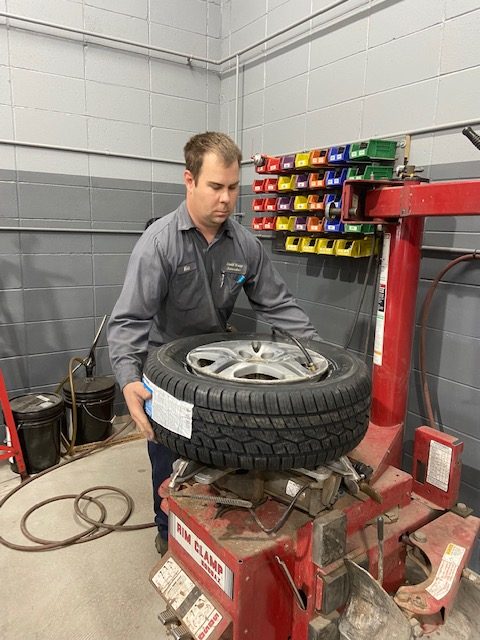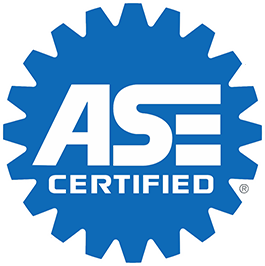 How often should I rotate my tires?
How often should I rotate my tires?
Your tires should be rotated every other oil change or every 5,000 miles. Ignoring to rotate tires is a major cause of premature tire wear.
Is it really necessary to replace my timing belt at the manufacturer recommended interval?
Absolutely. When a timing belt fails, this can cause significant damage to the engine. The cost to repair an engine with a broken timing belt is much greater than the cost of a timing belt replacement. It’s best to follow manufacturer recommendations and avoid neglect.
What does it mean if my “check engine” or “service engine soon” light comes on?
This typically means that a sensor or computerized component that manages your vehicle’s performance has failed, which typically will turn on the “check engine” light. Although your car may seem to run fine, it is important to have the issue looked at to prevent any long-term problems or failure of emission tests that may occur down the road.
What should I do if my car starts to overheat?
Overheating is something to take very seriously – if your car overheats for too long, you can damage your engine. As soon as you detect an overheated engine, look for a safe place to pull off the road and shut off the engine! Do not attempt to check the fluid level in the radiator as it can explode and burn you. The best thing to do is have your car towed to a repair shop where a trained mechanic can assess the issue.
When should I get my oil changed?
Newer vehicles can typically run longer than the standard 3,000 miles before getting an oil change, however these vehicles run on high-end synthetic oils. As a safeguard, you should learn what type of oil your vehicle is running on and consult your mechanic. On average, it’s best you should get your oil changed every 3,000 miles or as recommended in your vehicle’s owner’s manual. If intervals are extended, ensure you use oil that is capable of extended mileage changes.
What causes milky brown engine oil?
Milky brown engine oil is an indication of coolant in the oil. This can be caused by a blown head gasket (other gasket), a failed transmission cooler or cracked casings. This condition is quite serious and without delay, needs to be checked by a professional technician.
How to make sure my car battery has a good electrical connection?
It’s best to have your battery cables and its terminals cleaned and inspected to ensure they provide the needed electrical connection to run effectively.
What is synthetic motor oil?
Synthetic motor oils can be a good choice for high output, turbocharged or supercharged engines, vehicles that are used for towing (especially during hot weather) or vehicles that are operated in extremely cold or hot climates. Synthetic motor oils, though several times more expensive than mineral-based motor oils, can improve fuel economy and provide longer intervals between changes. They also provide instant lubrication on start-up.
When should I replace my car’s fuel filter?
To help maximize dependable, trouble-free performance, replace your car’s fuel filter approximately every 30,000 miles or as recommended in your vehicle’s owner’s manual.
When should I change my spark plugs?
For maximum fuel economy and peak engine performance, your spark plugs should be replaced every 30 months or 30,000 miles, unless your vehicle is equipped with 100,000-mile platinum-tipped spark plugs.
What should I do when I need to replace a burned out fuse?
Always replace burned-out fuses with ones of the same amperage, which is printed on the fuse and note that if a fuse continues to “blow,” you should have the circuit checked professionally by one of our technicians for defects.





